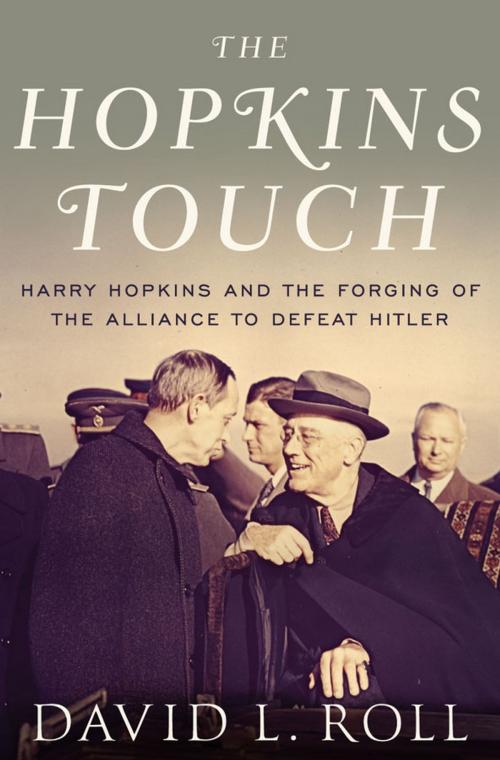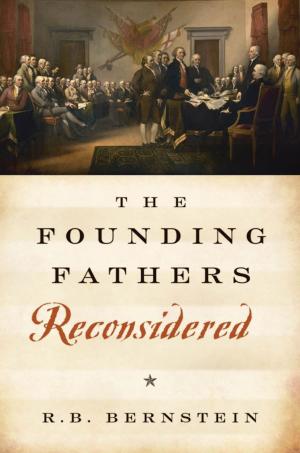The Hopkins Touch: Harry Hopkins and the Forging of the Alliance to Defeat Hitler
Harry Hopkins and the Forging of the Alliance to Defeat Hitler
Nonfiction, History, Americas, United States, 20th Century| Author: | David L. Roll | ISBN: | 9780199311552 |
| Publisher: | Oxford University Press, USA | Publication: | November 26, 2012 |
| Imprint: | Oxford University Press | Language: | English |
| Author: | David L. Roll |
| ISBN: | 9780199311552 |
| Publisher: | Oxford University Press, USA |
| Publication: | November 26, 2012 |
| Imprint: | Oxford University Press |
| Language: | English |
The Hopkins Touch offers the first portrait in over two decades of the most powerful man in Roosevelt's administration. David Roll shows how Harry Hopkins, an Iowa-born social worker who had been an integral part of the New Deal's implementation, became the linchpin in FDR's--and America's--relationships with Churchill and Stalin, and spoke with an authority second only to the president's. Gaunt, nearly spectral, and malnourished following an operation to remove part of his stomach, the newly widowed Hopkins accepted the president's invitation to move into the White House in 1940 and remained Roosevelt's closest advisor, speechwriter, sounding board, and friend nearly to the end. Between 1940 and 1945, with incomparable skill and indefatigable determination, Hopkins organized the Lend-Lease program and steered the president to prepare the public for war with Germany. He became FDR's problem-solver and fixer, helping to smooth over crises, such as when the British refused to allow an invasion of Europe in 1943, enraging Stalin, who felt that the Soviet Union was carrying the military effort against the Nazis. Lacking an official title or a clear executive branch portfolio, Hopkins could take the political risks his boss could not, and proved crucial to maintaining personal relations among the Big Three. Beloved by some--such as Churchill, who believed that Hopkins "always went to the root of the matter"--and trusted by most--including the paranoid Stalin--there were nevertheless those who resented the influence of "the White House Rasputin." Based on newly available sources, The Hopkins Touch is an absorbing, substantial new work that offers a fresh perspective on the World War II era and the Allied leaders, through the life of the man who kept them on point until the war was won.
The Hopkins Touch offers the first portrait in over two decades of the most powerful man in Roosevelt's administration. David Roll shows how Harry Hopkins, an Iowa-born social worker who had been an integral part of the New Deal's implementation, became the linchpin in FDR's--and America's--relationships with Churchill and Stalin, and spoke with an authority second only to the president's. Gaunt, nearly spectral, and malnourished following an operation to remove part of his stomach, the newly widowed Hopkins accepted the president's invitation to move into the White House in 1940 and remained Roosevelt's closest advisor, speechwriter, sounding board, and friend nearly to the end. Between 1940 and 1945, with incomparable skill and indefatigable determination, Hopkins organized the Lend-Lease program and steered the president to prepare the public for war with Germany. He became FDR's problem-solver and fixer, helping to smooth over crises, such as when the British refused to allow an invasion of Europe in 1943, enraging Stalin, who felt that the Soviet Union was carrying the military effort against the Nazis. Lacking an official title or a clear executive branch portfolio, Hopkins could take the political risks his boss could not, and proved crucial to maintaining personal relations among the Big Three. Beloved by some--such as Churchill, who believed that Hopkins "always went to the root of the matter"--and trusted by most--including the paranoid Stalin--there were nevertheless those who resented the influence of "the White House Rasputin." Based on newly available sources, The Hopkins Touch is an absorbing, substantial new work that offers a fresh perspective on the World War II era and the Allied leaders, through the life of the man who kept them on point until the war was won.















